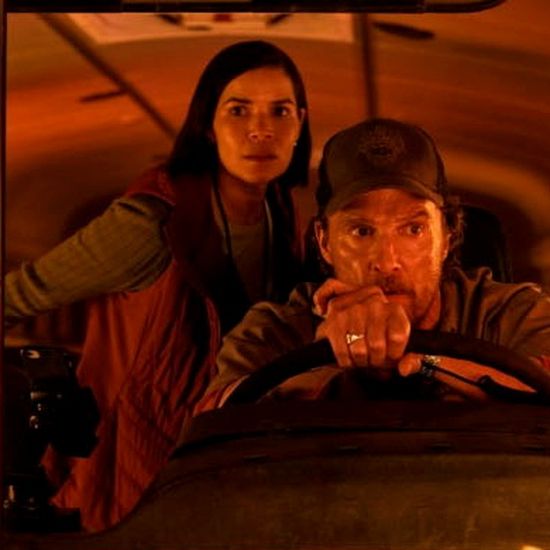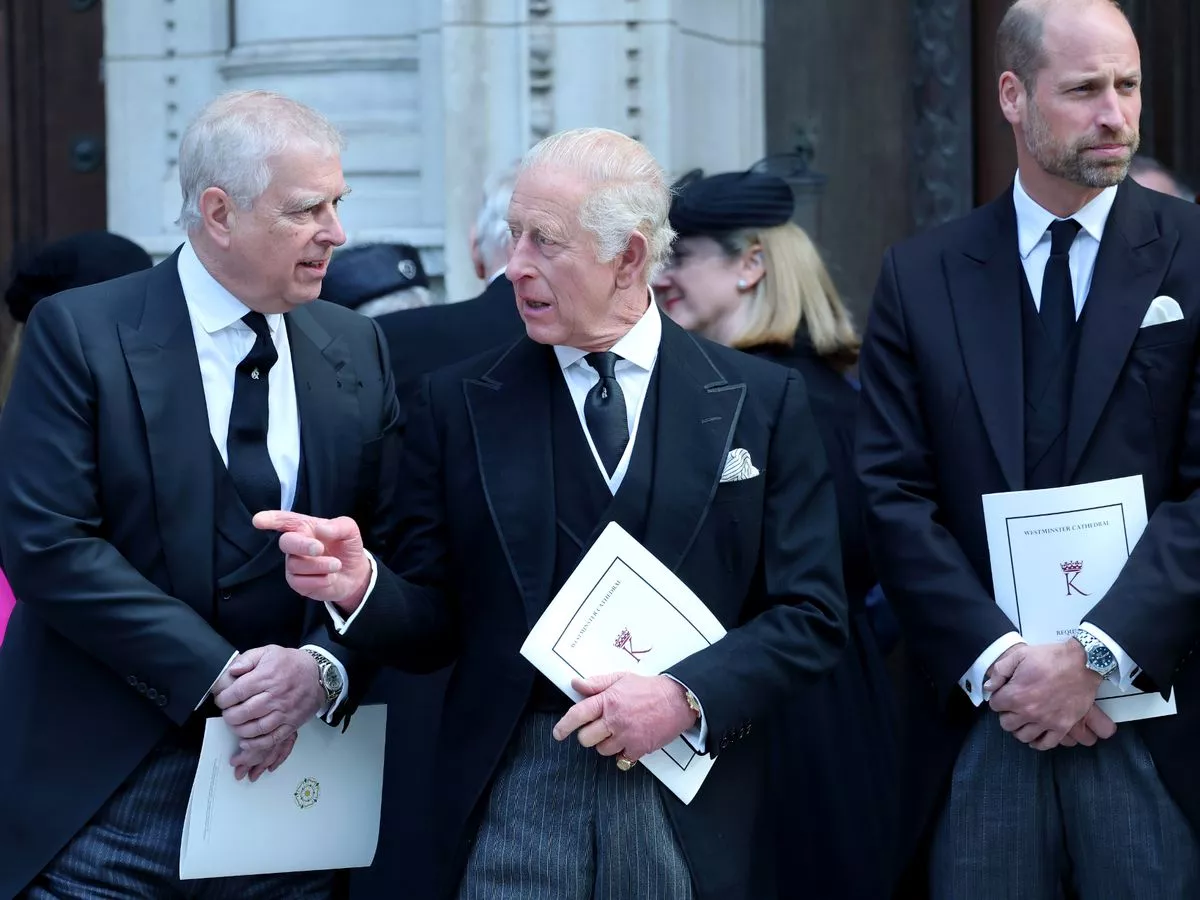By Helen Brown
Copyright independent

Talking via Zoom from New York, the 41-year-old star of Ugly Betty and Barbie − who appears in The Lost Bus opposite Matthew McConaughey − explains that the film’s English director, Paul Greengrass, “used gas burners on set to generate real flames … so Matthew and I really got the feeling. Although, obviously, these were controlled fires; nothing close to how things would have felt in real life”.
Ignited by a poorly-maintained electricity transmission line, the so-called “Camp Fire” of November 2018 was spread at terrifying speed by high winds blowing through the canyons of Butte County, northern California. It raged for 17 days across 153,336 acres and through four communities, leading to the displacement of more than 50,000 people, 85 deaths and an estimated $16.5bn (€14.6bn) in damage.
The Lost Bus fictionalises the true story of Kevin McKay, a school bus driver who evacuated 22 children from a local elementary school that was threatened by the fire, then spent the best part of six hours ferrying them through rapidly advancing flames, gridlocked traffic and thick black smoke to safety, 30 miles away. On board with McKay were teachers Abbie Davis (who isn’t depicted in the film) and Mary Ludwig (on whom Ferrera’s character is based).
As smoke began to fill the bus, McKay took off his shirt and ripped it into makeshift face-masks; Davis and Ludwig doused the scraps of fabric in water and showed the children how to wear them.
In interviews, Ludwig and Davis have each said there were moments when they feared that nobody would survive that bus journey. “We were both trying to keep each other from crying,” Ludwig told CBS News at the time. “And we just kind of held hands and… we just said a prayer.”
What happens to a person when there is no more fighting, surviving, holding on…
In one of the film’s bleakest moments, Ferrera’s Mary considers letting the fumes send the children to sleep, so they would already be unconscious if the flames did overwhelm the bus.
Ferrera closes her eyes as she recalls filming that scene, “exploring a character reaching a place of complete surrender. What happens to a person when there is no more fighting, surviving, holding on… when there is nowhere else to go but accept one’s own mortality? That is a conversation I had with Mary.”
As with the 2013 film Captain Phillips, Greengrass’s earlier recreation of the real-life hijacking of a US cargo ship by Somali pirates, the success of The Lost Bus depends on its ability to convince us that the fiction we are seeing is authentic.
To prepare for filming, Ferrera says she and McConaughey spent “many hours” talking to Ludwig and McKay to understand what they were thinking and feeling on the day of the fateful bus ride.
“They did this incredible act of service,” she explains, “taking care of other people’s children in the middle of a disaster when they both had their own children out in the town and had to trust that other people would come to their kids’ aid.” She points out that, to this day, neither driver nor teacher consider themselves “heroes”, but rather “normal people doing their jobs”.
As Ferrera puts it, “my Mary is not a character in Spandex and tights making these decisions in the knowledge that her superpowers would come through.”
In the years since, McKay has repeatedly stressed that while he was driving the children away from the fire, he was awed by the heroism of the firefighters heading in the opposite direction, straight into the heart of the inferno.
Ludwig, “a lifelong resident of the community, who had been teaching at that school for 20 years”, was clear with Ferrera that when that morning she climbed the steps on to the bus with a driver she’d never met before, she had no idea that she’d end up “in a Hollywood disaster movie”.
“She was expecting it to be a 10-minute drop off,” says Ferrera, “not the most harrowing six hours of her life.”
In an interview with Time magazine, Greengrass said he and his co-writer Brad Ingelsby decided early on to shoot the fire as a predatory character in its own right “like the shark in Jaws. That’s why I created those shots of the fire moving. So you felt its voracious appetite and then its insidious character at the end when they get trapped.” Ferrera recalls this idea being discussed on set.
“There are times you are ‘with’ the fire the way you might be with the monster in a horror film,” she says. “The characters are running from this uncontrollable monster.”
Ferrera got her big break at 18, in Real Women Have Curves (2002) and went on to win audiences’ hearts as Carmen in Ken Kwapis’s coming-of-age drama The Sisterhood of the Travelling Pants (2005) and again as the lovably nerdy, braces-wearing heroine of ABC sitcom Ugly Betty (2006-2010).
Although the series picked up several major awards, she points out there would not be another show led by a Latina actor on American TV for a further eight years; Ferrera remains the only Latina ever to win an Emmy in a lead category.
I set out to be an artist, an actress, not to make a point
Today, Ferrera is almost as well known for her activism as for her acting: with Desperate Housewives star Eva Longoria, she co-hosts She Se Puede, a digital lifestyle platform created to encourage voting within the Latina community. She has also been a prominent supporter of the #MeToo campaign and was the opening speaker for the Women’s March on Washington in 2017.
“I set out to be an artist, an actress, not to make a point or represent people,” she says.
But it has become to her “very clear how much those conversations were a part of what people saw in me. And I was very, very happy to speak about those things.” She shrugs. “A lot of the conversations I’ve had to have since I was 17 years old are not why I went into the industry.”
Although Ferrera says she has “lots of feelings” around climate change and Donald Trump’s “Drill baby drill!” position on fossil fuels in particular, she resists discussing it further. She will only note that wildfires seem to have become “more and more an issue all over the world” since The Lost Bus was shot.
“We all understand how relevant what happened in 2018 is today,” she concludes. “You can’t deny that it’s man against nature now.”
The Lost Bus is in cinemas from September 19 and Apple TV+ from October 3



